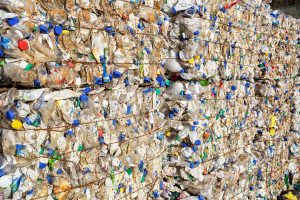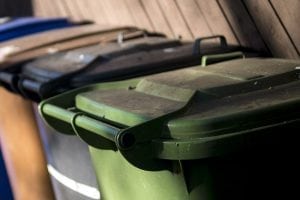
A legal dispute in California centers on the state’s change in how it collects disposal and diversion rate data. | Esin Deniz/Shutterstock
The Institute of Scrap Recycling Industries has won a court order temporarily shielding its scrap metal recycling members from having to relay their tonnage data to California regulators.


 Five plastics recycling projects will take in a total of $11.7 million in California state grants. The awarded companies are targeting scrap plastic from a variety of sources.
Five plastics recycling projects will take in a total of $11.7 million in California state grants. The awarded companies are targeting scrap plastic from a variety of sources. Legislation requiring 100 percent post-consumer plastic in beverage containers is gaining traction in California. Meanwhile, recently released data shows recycled plastic usage remains relatively low in the state’s bottling industry.
Legislation requiring 100 percent post-consumer plastic in beverage containers is gaining traction in California. Meanwhile, recently released data shows recycled plastic usage remains relatively low in the state’s bottling industry. This story has been corrected.
This story has been corrected. San Francisco has seen significantly more diversion from its curbside program since changing the standard sizes of recycling and garbage receptacles issued to residents.
San Francisco has seen significantly more diversion from its curbside program since changing the standard sizes of recycling and garbage receptacles issued to residents. A $1 million loan from the state of California will help a small manufacturer boost its production of recycled-fiber-content bottles.
A $1 million loan from the state of California will help a small manufacturer boost its production of recycled-fiber-content bottles. The leader of California’s recycling agency recently weighed in on China’s import restrictions, addressing concerns he’s heard from local government and industry representatives.
The leader of California’s recycling agency recently weighed in on China’s import restrictions, addressing concerns he’s heard from local government and industry representatives. California officials will slow their process of crafting mandatory recycling rules for packaging, citing upheavals caused by China’s import restrictions.
California officials will slow their process of crafting mandatory recycling rules for packaging, citing upheavals caused by China’s import restrictions. A legal petition seeking to block a major Waste Management trash-sorting facility in the San Francisco Bay Area has been denied.
A legal petition seeking to block a major Waste Management trash-sorting facility in the San Francisco Bay Area has been denied. ECS Refining, one of the nation’s largest e-scrap processors, filed for Chapter 11 bankruptcy last week. But the move appears to be driven more by an ownership struggle than bottom line issues.
ECS Refining, one of the nation’s largest e-scrap processors, filed for Chapter 11 bankruptcy last week. But the move appears to be driven more by an ownership struggle than bottom line issues.